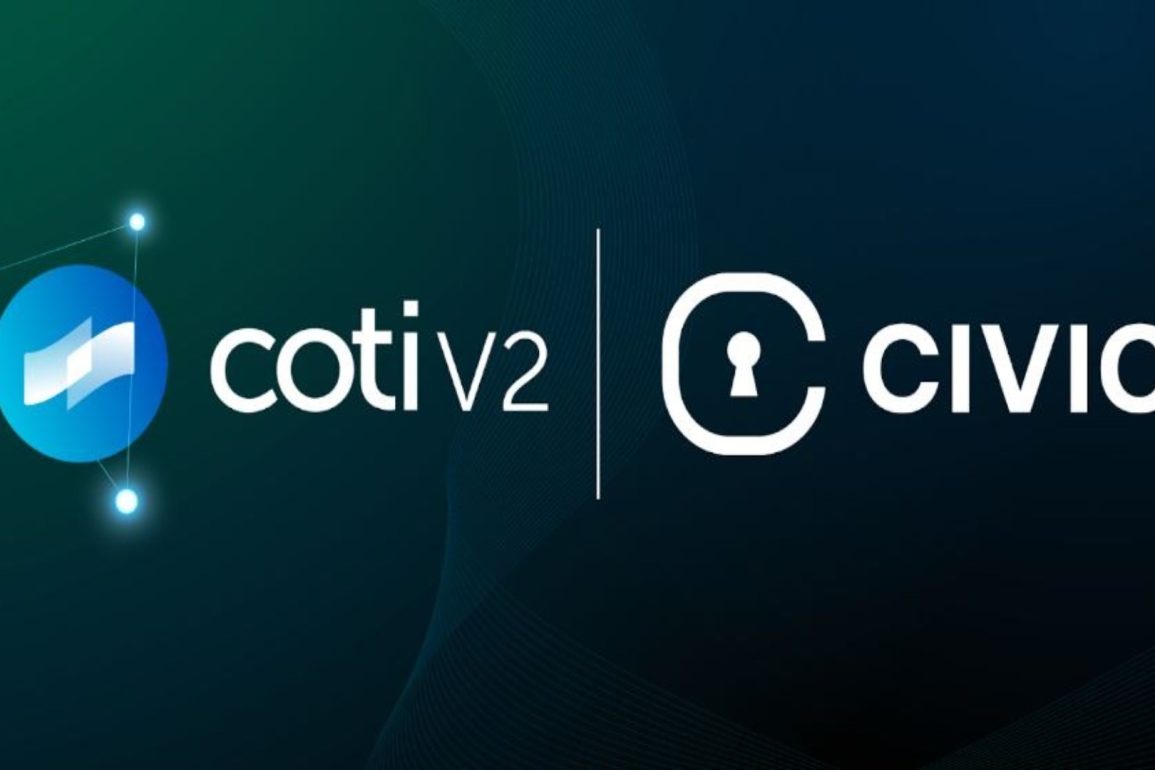- Summary:
- Users can securely store their sensitive info with Civic without having to physically disclose it while still enabling AML and KYC compliance.
COTI, the world’s fastest, lightest, and most secure confidentiality layer on Ethereum, has announced a partnership with Civic, the leading provider of identity management tools for Web3, to ensure full data protection and confidentiality for Civic users. The partnership will see Civic using COTI V2’s confidentiality layer for Dynamic decentralized identity (DID) offering.
Shahaf Bar-Geffen, COTI CEO said: “We’re excited to integrate COTI V2s confidentiality layer into Civic’s platform. Civic is an industry leader in the field of identity management tools for Web3, and COTI will continue to partner with industry leaders. We look forward to working with Civic’s professional team to bring Dynamic DID into full production”.
COTI V2’s Dynamic DIDs leverage Civic Pass, which is both a verified credential and a non-transferable token in the user’s wallet. Civic Pass can serve as inputs to meet regulatory requirements like Anti-Money Laundering (AML) and Know Your Customer (KYC).
A user’s digital identity is the personal record of their data, credentials, and identifiers that exist throughout the Internet. With so much of our lives taking place online, users are growing increasingly aware of the importance of actively managing their digital identities to avoid data breaches, hacks, and non-consensual data monetization. COTI V2’s confidentiality layer allows the data to provide both verification and computation while staying encrypted throughout.
Civic prioritizes user protection, as seen in their recent introduction of a physical ID card for Civic Pass holders. This enables enables Civic users to prove their identity and minimize the threat of AI driven identity fraud. The partnership between Civic and COTI represents a major step forward in protecting the digital footprint and credentials of users.
Both COTI and Civic are committed to providing users with full data privacy as they engage with dApps and explore innovative Web3 use cases with confidence. The ability to manage an advanced version of users’ decentralized identity (DID) with COTI V2 will empower dApps to interact with Civic’s identities and query complex insights without accessing sensitive data.
Harnessing the privacy-preserving power of garbled circuits, COTI V2 unlocks Dynamic DID, a powerful upgrade that allows for advanced features like confidential data sharing and complex calculations. Civic will be integrating with COTI V2 across all phases of COTI V2’s development: Devnet, Testnet, and Mainnet, as a design partner
The partnership marks a major step in enabling true self-sovereignty of users’ digital identity as more people enter the Web3 ecosystem. Users can securely store their sensitive information with Civic without having to physically disclose it, while still enabling seamless compliance with regulatory frameworks like Anti-Money Laundering (AML) and Know Your Customer (KYC) requirements.
About Civic
Civic is a leading provider of identity management tools for web3, empowering people to easily and privately manage their identities across chains with an on-chain representation of their reusable identity. The company’s flagship product, Civic Pass, is an integrated permissioning tool that helps business customers enable secure access to their on-chain assets. Users may also manage their identity, presence and reputation with a dashboard. Civic aims to be the most trusted on-chain identity tool in the world, used by billions every day. Civic was co-founded in 2015 by Vinny Lingham and Jonathan Smith.
About COTI
COTI is the fastest and lightest confidentiality layer on Ethereum. Powered by the breakthrough cryptographic protocol Garbled Circuits and secured by Ethereum, COTI introduces the most advanced and compliant solution for data protection on the public blockchain. Paving the way for the next wave of Web3 innovation and adoption, COTI unlocks a whole new world of use cases, including confidential transactions, Artificial Intelligence, DeFi, decentralized identification, and more.


